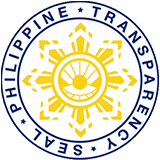Representatives from the Department of Education (DepEd) Central Office Bureau of Human Resource and Organizational Development (BHROD) – School Effectiveness Division (SED) recently embarked on a mission to assess schools in the Schools Division of Sarangani based on the Guidelines for the provision of Special Hardship Allowance for Public School Teachers.
Project Development Officer III Christopher L. Devera is grateful for the opportunity to reach the farthest schools in the Schools Division of Sarangani. His visit allowed him to witness firsthand the challenges faced by teachers in their commute to these remote schools. This experience highlighted the diverse factors that must be considered when determining a school’s eligibility for a hardship post.



In a remarkable show of support, Schools Division Superintendent Ruth L. Estacio, PhD., CESO VI, personally joined the validation process at Datal Anggas Integrated School, one of the most remote schools in the Municipality of Alabel.
She took to Facebook to commend the dedicated teachers, stating, “Teachers assigned in the remote areas deserve more than a hardship post allowance. Salute and respect to all teachers in the hinterlands.”
Dr. Estacio further added, “Truly, your sacrifices, steadfastness, dedication, and unwavering commitment are admirable and worthy of emulation. You have left your families behind in the lowland, spent too much on transportation to reach the remote areas, and risked your own lives just to serve every learner and to provide the quality education that they all deserve.”



Chief of School Governance and Operations Division, Ma. Shirley M. Cardinal, Planning Officer III Bualan Y. Abid, Jr., and Engr. Christine Mae Bartolaba from the Educational Facilities Section also joined the effort to assess the far-flung schools in the municipalities of Alabel, Malapatan, and Glan.


This validation process not only underscores the commitment of DepEd to ensure the well-being of teachers in challenging assignments but also highlights the dedication of educators who go to great lengths to provide quality education to students in remote areas.
The results of this validation will play a crucial role in determining which schools qualify for the Special Hardship Allowance, providing much-needed recognition and support for the hardworking teachers who serve in these underserved communities.


